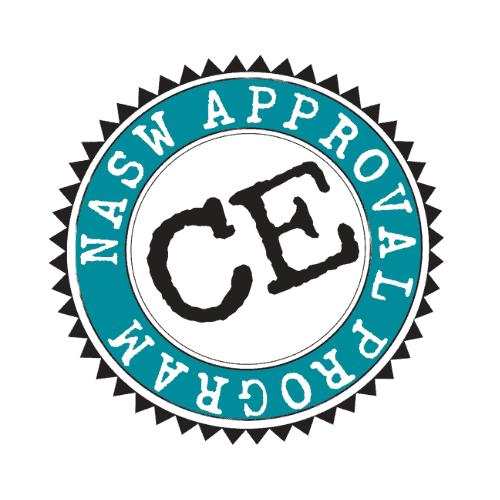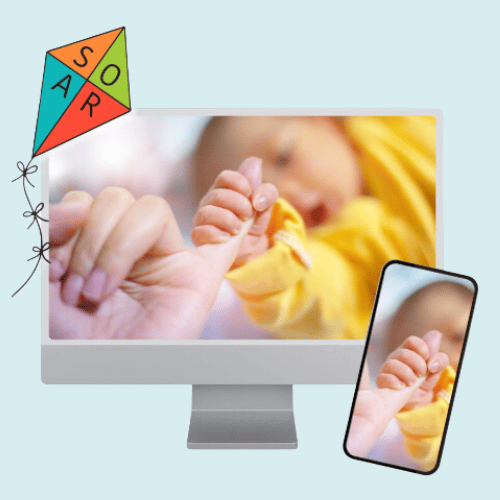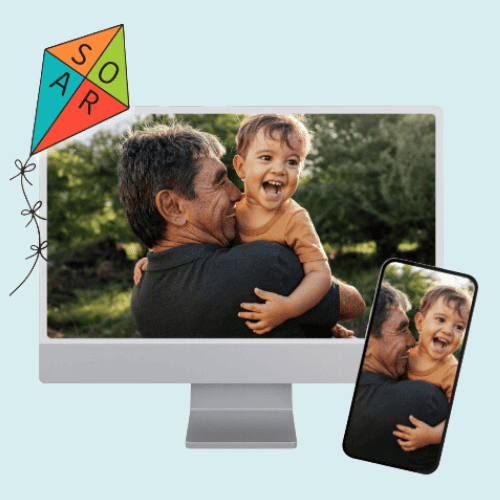Grow resilience through a trauma-informed lens
A course created to deepen your understanding of trauma and its impacts on child development while learning strategies to grow resilience using a trauma-informed approach.
AFFORDABLE
SELF-PACED
Research-Based
Resilience is the ability to build back
When it comes to trauma, resilience is less about bouncing back and more about having the support needed to cope, adapt, and build back over time. No two people experience trauma in the exact same way. Traumatic events, especially in childhood, impact brain development, health, and life course outcomes.
When we become aware and understand the effects of trauma, we can move from judgment and blame to curiosity and care. It’s possible to cultivate resilience and recover from these experiences.
In our online course, Growing Resilience Through a Trauma-Informed Approach, we break down complex concepts so you can easily understand trauma research and apply strategies to support recovery and build resilience across the life span for children, individuals, families, and communities.
Building resilience and strength in families is the most important investment we can make in our society.

Continuing Education for Social Workers
This program is Approved by the National Association of Social Workers (Approval #886914625-5965) for 2 continuing education contact hours.
Be more than trauma-aware — Become trauma-informed
70% of people around the world have experienced at least one traumatic event in their lifetime.
That’s why learning how to be trauma-informed is essential in the recovery and prevention of trauma.
With the Growing Resilience Through A Trauma-Informed Approach course, you will learn the science behind trauma and strategies for restoring safety, increasing empathy, and supporting resiliency in yourself and others.
Learn trauma-informed principles
Learn the four elements of trauma-informed and the six principles that guide adherence to the approach for organizations, communities, and groups.
Explore resilient-oriented practices
Learn how resilience-oriented approaches and neuroeducation can enhance Trauma-Informed Approaches.
Identify adverse experiences
Understand adverse experiences that can increase the risk for negative life course and health outcomes.
A course that fosters resilience
Your $50 investment makes a lasting impact

Complete the Course
Participate in the 2-hour online training experience at your own pace

Reflect on New Knowledge
Put the new perspective into action and feel more confident in practicing a trauma-informed approach
See What’s Included with the Course
This course is broken into four objectives that will expand your understanding of trauma, its impacts, and the importance of a trauma-informed approach for supporting the growth of resiliency.
Objective 1
Trauma and the Adverse Childhood Experiences Study
Explore the three components that comprise trauma. You will also explore the ACEs study to identify a variety of adverse experiences that can increase the risk for negative outcomes.
Objective 2
Trauma, Toxic Stress, and Impacts on Early Development
We share the relationship between trauma, toxic stress, and impacts on early childhood development. You will also explore how early experiences impact health outcomes and how our genes are expressed.
Objective 3
Resilience and How to Support It in Childhood
Learn about resilience and explore the six protective factors that can strengthen and improve healthy outcomes for children. You will also explore specific ways that resilience can be supported and built in early childhood.
Objective 4
Trauma-Informed Approach and Ways to Grow Resilience at Any Age
Discover the 4 R’s and the 6 Key Principles of a Trauma-Informed Approach. You will also explore ways resilience orientation and neuroeducation can enhance trauma-informed approaches and explore concrete strategies for supporting recovery and resilience at any age.
Take a deep breath! You are almost on your way to transforming your practice by experiencing a course that widens your understanding of trauma and its impacts on our communities.
Lean on the research-informed strategies and tools that will guide you to implement trauma-informed care.
WHAT PARTICIPANTS SAY
“It was easy to understand, and I can do it as I have time”
“Deepened my understanding of trauma to support healing myself and others.”
“I learned a lot and it made a tough concept easy to understand.”
More SOAR Courses You’ll Love
Through this evolving library of personal & professional development courses, our goal is to provide learners with foundational knowledge to enhance their skills.

The Power of Observation: Strengthening the Parent-Child Bond
Explore how using the observational framework supports strengthening parent-child bonds. It identifies and increases positive parent-child interactions.

The Science of Attachment
The Science of Attachment is a 2-hour self-paced online course exploring and reflecting on the research behind the science of attachment – the deep emotional bond between an infant and their primary caregiver.

A Strengths-Based Approach
The strength-based approach allows people to see themselves at their best rather than focus on negative characteristics. In this 2-hour self-paced online course, learners will develop their understanding of this approach and feel confident using it.
